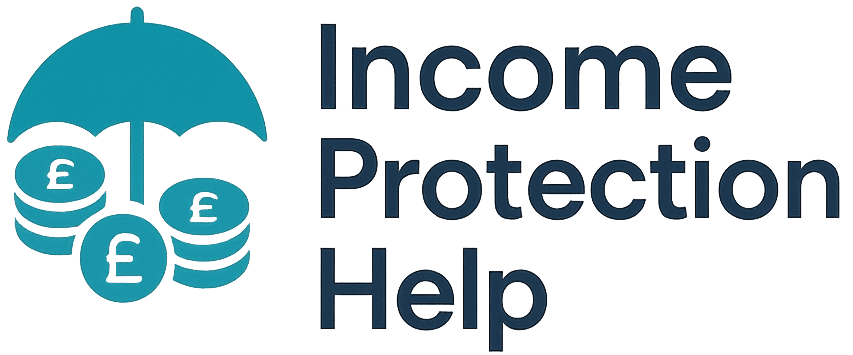What is income protection?
Income protection is an insurance policy designed to replace a portion of your income if you’re unable to work due to illness or injury. It pays a monthly benefit until you recover, retire or your chosen benefit period ends. For company directors, an executive income protection (EIP) policy allows the business to fund the premiums and receive Corporation Tax relief.
How income protection works
With income protection, you choose:
- The benefit level: Executive plans can protect up to 80 % of your pre-incapacity salary and dividends, often capped at £25,000 per month. Personal policies usually protect up to 65 % of your income.
- Deferred period: The waiting period before benefits start can range from a week to a year. Longer deferred periods lower your premium but mean you need a financial buffer to tide you over — see how much income protection you might need.
- Benefit term: You can choose a short-term or long-term policy depending on your budget and risk tolerance.
- Indexation: Many policies allow your benefit to increase with inflation. Some EIP plans provide an increasing benefit option, where the monthly payout can rise in line with the Retail Prices Index (RPI) each year.
The business pays the premiums monthly or annually. If you’re unable to work and meet the policy’s definition of incapacity, the insurer pays the benefit to your company. The company then uses that money to continue paying you. For personally funded plans, the benefit is paid directly to you.
Executive vs personal policies
Executive income protection (EIP) is taken out by a company to cover an employee, typically a director. HMRC usually treats the premiums as an allowable business expense (HMRC Business Income Manual BIM46035), meaning they reduce the company’s Corporation Tax bill. The premiums aren’t considered a benefit-in-kind, so there’s no P11D reporting requirement or National Insurance to pay. If the company makes a claim, the monthly benefit is paid to the business and taxed as trading income.
Personal income protection policies are paid from your post-tax income. Premiums aren’t tax-deductible, but any claims are paid tax-free because you’ve already paid tax on the money used to buy the policy. Personal plans typically cover a lower percentage of your income (around 60–65 %).
What does executive income protection cover?
EIP can insure more than just your salary. Some plans cover:
- Your salary and dividends up to 80 % of your pre-incapacity earnings.
- P11D benefits and spouse or registered civil partner earnings.
- Employer National Insurance and pension contributions (within limits).
When choosing your policy, check that the insurer defines incapacity on an own-occupation basis. This means the policy pays out if you can’t perform your own job, rather than any job, which provides greater security. The Association of British Insurers (ABI) provides further guidance on definitions of incapacity.
Tax treatment
One of the main reasons company directors choose executive cover is the tax treatment. HMRC generally accepts that EIP premiums are an allowable business expense when the policy covers an employee and is taken out wholly and exclusively for business purposes. This means:
- The company can deduct the premiums when calculating its Corporation Tax bill (GOV.UK – Corporation Tax).
- No benefit-in-kind arises for the insured person, so there is no Income Tax or National Insurance to pay on the premiums.
- Payouts to the company are treated as trading income and taxed when distributed as salary or dividends.
For personal policies, you pay the premiums from your own income, which has already been taxed. There is no further tax to pay on any claim proceeds.
Why income protection matters
If you’re a director, you may think your company will look after you if you’re off sick. In reality, Statutory Sick Pay (SSP) is very limited and only runs for 28 weeks. EIP ensures your business can continue paying you up to 80 % of your usual income while you recover. This protects your personal finances and keeps your company going.
Even if you’re not a director, income protection can help you avoid dipping into savings or taking on debt to pay your bills while you’re ill. Freelancers and sole traders should consider personal or contractor-specific income protection, which provides tax-free monthly payments until you get back on your feet.
Key considerations
When choosing an income protection policy, think about:
- How long you could survive without income. A longer deferred period reduces premiums but may require a bigger emergency fund.
- Whether you want a payout that lasts for a set period (e.g. 12 or 24 months) or until retirement — see short-term vs long-term income protection.
- Indexation options to ensure your benefit keeps up with inflation.
- Whether the policy includes rehabilitation and back-to-work support, which some insurers offer through occupational health partnerships.
If you’re unsure, speak to a regulated adviser who understands the needs of directors. They can help you tailor a policy to your circumstances and ensure you obtain the full tax benefits available. You can also get a quote to compare costs from leading UK insurers.
